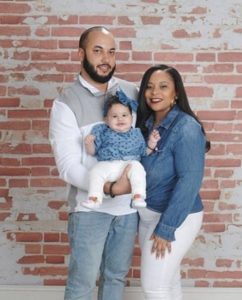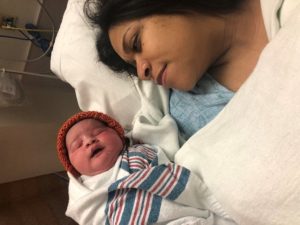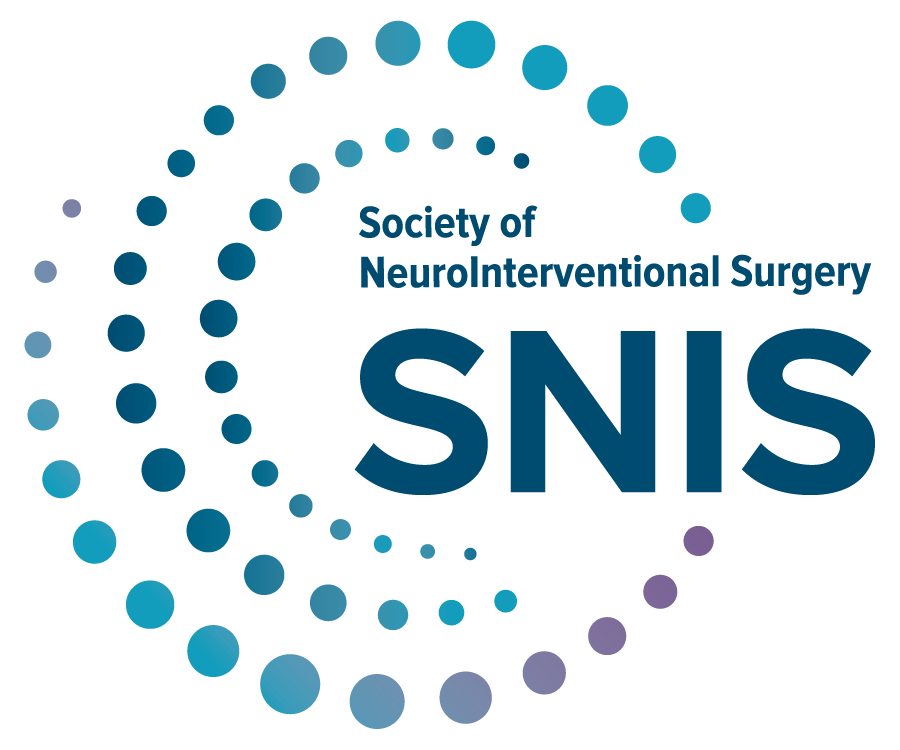 If you want to know what a stroke looks like, ask Belendia Williams. She saw one up close and personal when she found her 35-year-old sister Leah Speights undressed and unresponsive on her bed.
If you want to know what a stroke looks like, ask Belendia Williams. She saw one up close and personal when she found her 35-year-old sister Leah Speights undressed and unresponsive on her bed.
Leah, who had experienced migraines for years, didn’t think much of her headache that cold morning in February 2018. She suspected dehydration, so decided to eat something. But when she got sick to her stomach and fell to the floor several times, she knew this was more than a migraine. She called her sister, who called EMS.
“I actually suggested that they test for strokes,” said Williams. “She had a twisted face.”
After the first facility in Wayne, Mich., referred her to care at Beaumont Hospital in Dearborn, a neurointerventional care team worked quickly to address the multiple clots that were attacking her brain. According to Williams, Dr. Sandra Narayanan broke down all of the medical issues and dangers that Leah was facing, and how imperative it was for Leah to undergo a thrombectomy, which would remove the clots blocking blood flow to her brain.
There was another complication: Leah was pregnant.
 Leah was in the hospital for almost 2 weeks following her stroke surgery and then transferred to Beaumont, Taylor — a rehab facility where she spent nearly another two weeks. But the work she did in recovery has paid off.
Leah was in the hospital for almost 2 weeks following her stroke surgery and then transferred to Beaumont, Taylor — a rehab facility where she spent nearly another two weeks. But the work she did in recovery has paid off.
“In addition to my care team, I really have my sister to thank,” says Speights. “She was my rock through all of this.”
Today, Leah has no deficits; the stutter and limp that followed the stroke have disappeared, and she gave birth to a healthy daughter, Dakota.
“Doctors who can help you do exist. And they are going to do their best,” says Speights. “But don’t ignore your migraines, and push for an MRI so you can know what’s going on in your brain.”
If you ask Williams about the experience, she’ll tell you it was nothing short of a miracle. But Leah had someone else rooting for her. “Knowing she had a child coming into this world helped Leah to focus on her recovery versus her illness,” says Williams.

 If you want to know what a stroke looks like, ask Belendia Williams. She saw one up close and personal when she found her 35-year-old sister Leah Speights undressed and unresponsive on her bed.
If you want to know what a stroke looks like, ask Belendia Williams. She saw one up close and personal when she found her 35-year-old sister Leah Speights undressed and unresponsive on her bed. Leah was in the hospital for almost 2 weeks following her stroke surgery and then transferred to Beaumont, Taylor — a rehab facility where she spent nearly another two weeks. But the work she did in recovery has paid off.
Leah was in the hospital for almost 2 weeks following her stroke surgery and then transferred to Beaumont, Taylor — a rehab facility where she spent nearly another two weeks. But the work she did in recovery has paid off.